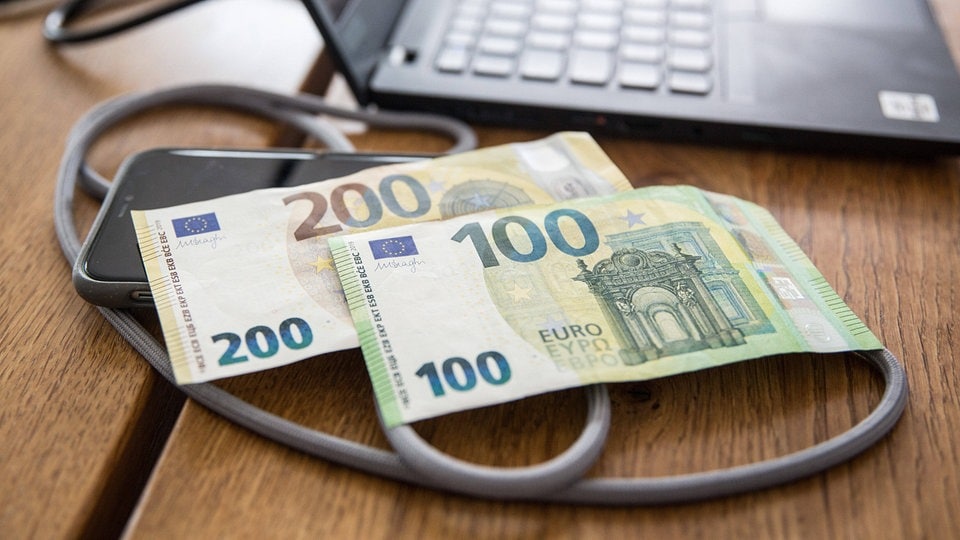The traffic light wants to help all employees with an energy price flat rate of 300 euros. But what about pensioners, Hartz IV recipients or mini-jobbers? An overview.
Munich – From September 1st, working people are entitled to the so-called energy price flat rate (EPP) of 300 euros. But who exactly does this apply to? And is it worth tricking, for example for pensioners? The Federal Ministry of Finance has now published what applies to the energy bonus.
Energy price flat rate: who is entitled?
According to the Ministry of Finance, it is everyone who is resident in Germany or usually resides there and is therefore subject to unlimited tax liability and who will receive income from one of the following sources in the course of 2022:
- Agriculture and Forestry
- commercial enterprise
- independent work
- wage labour
A specific period of time or a minimum duration is not required.
Which employees are meant?
According to the Ministry of Finance, these include:
- Workers, employees, trainees, civil servants, judges, soldiers
- Mini-jobbers and all temporary workers in agriculture and forestry
- Employees in the passive phase of semi-retirement
- Anyone who saves a value credit with the German Pension Insurance (DRV) Bund
- Anyone doing federal or youth voluntary service
- Who receives subsidies from the employer (e.g. for maternity leave)
- Those who only receive tax-free wages (e.g. voluntary trainers)
- Working students or students in paid internships
- Anyone who works in a sheltered workshop
- Anyone who is in active employment receives wage replacement benefits, including short-time work benefits, insolvency benefits, sick pay, maternity benefits, parental benefits, compensation for loss of earnings under the Infection Protection Act and transfer short-time work benefits
Energy price flat rate: What about the pensioners?
Retirees are explicitly excluded if they do not receive any of the above income. But even the income from a photovoltaic system counts as business income. However, this only applies if the simplification rule (BStBl. I p. 2202) was not used.
What about transfer recipients?
The claims are not mutually exclusive. Anyone who receives the one-off payment for transfer money recipients – such as the subsidy to Hartz IV or the child bonus – can also receive the EPP.
Is it worth cheating for energy money?
A Union politician had stated in a newspaper interview that it would be enough to look after your own grandchildren for an hour for a salary . That will not work. Because, as the Ministry of Finance has now confirmed, employment relationships that were only concluded for the purpose of receiving the lump sum are not recognised, and the attempt can even be punishable. Incidentally, this also applies if you try to get the EPP several times.
What applies to mini-jobbers?
Mini-jobbers with several jobs will only be paid the lump sum as part of the “first employment relationship”. The employee must specify in a written declaration which this is. Without this confirmation, the employer may not pay out the EPP. Fraud attempts are also punishable here.
Who gets the EPP paid out by the employer?
Anyone who is in a “first employment relationship” on September 1, 2022 and belongs to one of tax classes I to V, or is taxed as a mini-jobber at a flat rate. The rest have to file a tax return for the year 2022 to get the EPP.
Special payments in Munich: Here’s the electricity subsidy
From July 1st, those in need in the social community centers can apply for the electricity cost subsidy from the city of Munich. According to a statement from the city, “people who receive housing benefit, also together with child allowance, or whose income is below the poverty risk limit or below the requirement under SGBII, SGBXII or AsylbLG, are entitled without receiving these benefits”. In addition, people “who receive youth welfare according to SGBVIII and live in their own apartment, complete a voluntary social or ecological year and volunteers as part of the federal voluntary service,” it says. It’s up to 100 euros. The application requires a valid identification document and proof of one of the above requirements.

